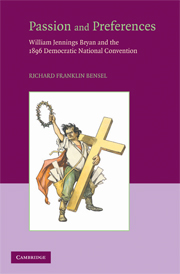5 - Rules and Rituals
Published online by Cambridge University Press: 24 July 2009
Summary
All meaningful human action rests on shared understandings of what is intended by words, gestures, and behavior. Much of what is referenced by the term “culture” merely describes the content of those shared understandings within one community or another and the boundaries of meaning that divide them. “Political culture” thus refers to the limits and content of shared understandings within a community with respect to the deployment of power, including the creation of institutions, collective decision making within those institutions, and the selection of those to whom authority is assigned.
The boundaries of a political community are defined by what the members have in common in terms of shared understandings of meaningful human action. In that sense, a shallow, limited set of understandings would define a much larger political community than a deep, extensive set. At one extreme, the notion of a “global” political culture might mean very little because only a very small number of actions carry universally understood meaning. At the other extreme, very small political communities often have a very rich political culture, so much so that an action by one of its members can simultaneously communicate multiple meanings that convey future intentions in great specificity.
At both extremes, either a global political culture encompassing all humanity or extremely small communities containing a very small number of people, formal political institutions either do not exist or are very weak.
- Type
- Chapter
- Information
- Passion and PreferencesWilliam Jennings Bryan and the 1896 Democratic Convention, pp. 123 - 158Publisher: Cambridge University PressPrint publication year: 2008



